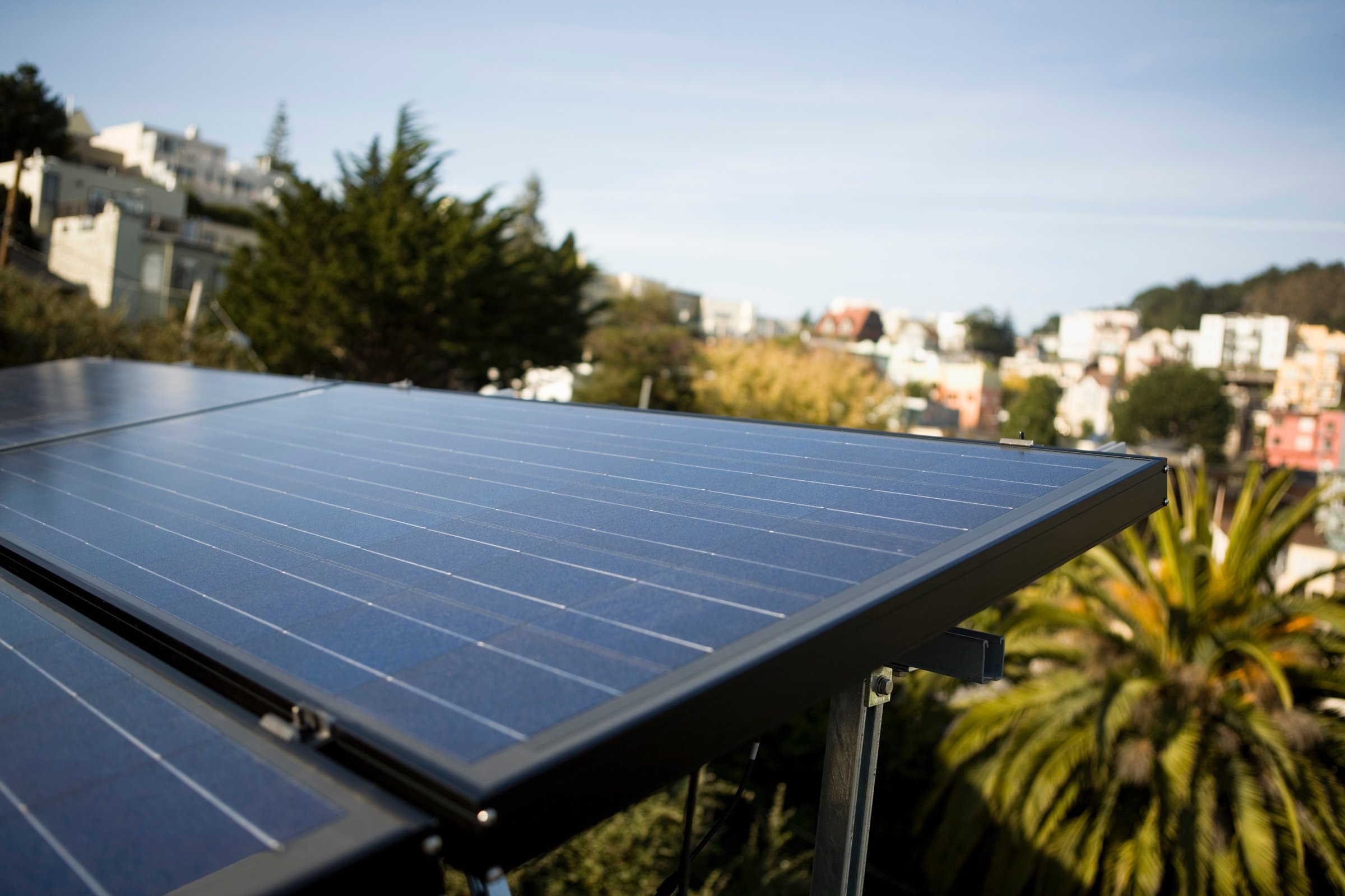
The solar power industry is welcoming California’s decision to continue its program of allowing homes and businesses with rooftop solar panels to sell excess energy back to their local utilities at the full retail rate. The only hitch: These customers face new fees to join the state’s electricity grid and as much as $10 each month to stay in the program.
The California Public Utilities Commission, in a three-to-two vote on Thursday, approved the new and renewed guidelines for what’s called “net metering,” which will continue providing incentives for home and business owners to install rooftop solar panels, which will mean even more business for the solar industry, making their products more attractive by helping lower the prices for the hardware.
New solar-power customers will also be charged a one-time fee of $150 for connecting to the grid and as much as $10 per month to remain in the program. Existing customers won’t be charged the fees. And even with the fees, the falling prices for solar equipment will offset the new costs imposed by the state, according to Bernadette Del Chiaro, the executive director of the California Solar Energy Industries Association. “At the end of the day, going solar in California will remain a very good economic investment,” Del Chiaro said.
Oilprice.com: Weak Economy Could Stifle Oil Price Rally
In the run-up to Thursday’s decision, the solar industry strongly opposed a footnote in the guidelines that would have required solar owners to pay an electricity transmission charge as their share of the cost of maintaining the grid.
The industry complained that would have doubled the fees that solar owners would have had to pay, canceling out their savings from using solar energy. A majority of the commission agreed and, the day before the vote, the panel eliminated that fee.
But that doesn’t make it fair, said two commission members, Mike Florio and Catherine J.K. Sandoval, who voted against the new guidelines. Florio said that without the extra fees, solar-equipped home and business owners wouldn’t be paying their rightful share to support California’s electrical grid.
Oilprice.com: Oil Prices in 2016 Will Be Determined By These 6 Factors
Besides, Florio said, the big winner here wouldn’t necessarily be solar power users. “All of us are pro solar,” Florio said, but added, “I don’t think these benefits are going to accrue to solar customers, they’re going to accrue to solar vendors.”
California has practiced net metering for the past two decades, Buying and installing rooftop solar panels once was seen as prohibitively expensive, but as with many novel technologies, the more it was adopted on the retail level, the quicker its cost fell, to the financial benefit of the solar power industry.
Three of the state’s largest utilities – Southern California Edison, San Diego Gas & Electric and Pacific Gas & Electric – had urged to commission to equalize the financial burden of solar and non-solar customers by increasing the fees charged to those who rely on solar energy.
Oilprice.com: Do Canadians Want To Stay In The Oil Business?
For example, Southern California Edison had argued that under the current arrangement, the average solar customer has a monthly electric bill of about $82. Under the commission’s decision, that would increase to $91. The utilities had argued for an increase to $103 per month.
Michael R. Picker, the president of the commission, voted with commissioners Liane M. Randolph and Carla J. Peterman against the utilities’ position. Picker called the decision “a big step, but it’s only one of many” to help California keep converting to renewable energy.
“This has been a very difficult task, to find the right balance,” Picker said. “There’s a shift in the way we use electricity. … [The decision] also forces the utility to come to grips with the technology challenges.”
This article originally appeared on Oilprice.com
More Must-Reads from TIME
- Donald Trump Is TIME's 2024 Person of the Year
- Why We Chose Trump as Person of the Year
- Is Intermittent Fasting Good or Bad for You?
- The 100 Must-Read Books of 2024
- The 20 Best Christmas TV Episodes
- Column: If Optimism Feels Ridiculous Now, Try Hope
- The Future of Climate Action Is Trade Policy
- Merle Bombardieri Is Helping People Make the Baby Decision
Contact us at letters@time.com